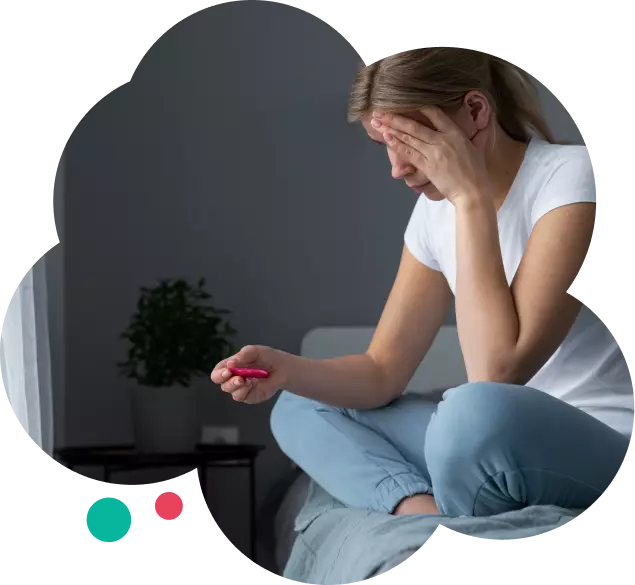
Unexplained infertility is the inability to conceive while having no identified medical conditions. At Feto IVF, we recognize the emotional hurdles that this disease brings. Our skilled team is committed to researching customized treatment solutions to improve your chances of conception and assist you in your family planning journey.

Unexplained infertility is a condition where couples face difficulty conceiving despite undergoing standard fertility tests that show normal results. This diagnosis can be frustrating, as it lacks a clear cause, but it affects approximately 10-20% of couples struggling with fertility issues. It simply means that no obvious medical reason has been found to explain why conception has not occurred.
Navigating unexplained infertility may be emotionally difficult for couples, who may feel helpless and unsure about their next actions. Seeking advice from reproductive specialists can help uncover tailored treatment alternatives. With developments in reproductive science, many couples with unexplained infertility can look into assisted reproductive procedures, which may boost their chances of conceiving and give hope for having a child.
Even though tests like ovulation tracking, sperm analysis, and evaluations of the uterus and fallopian tubes might seem normal, subtle factors could still contribute to infertility. Some of these might include:


Unexplained infertility is diagnosed by doing a thorough assessment to rule out any probable reasons. Key steps include:
These assessments aid in identifying any underlying causes of infertility, leading tailored treatment options for couples suffering unexplained issues.
At Feto IVF, we understand the emotional toll of such a diagnosis. The good news is that there are still effective treatment options to help overcome this challenge:

Yes, it affects between 10-30% of infertile couples, making it a very prevalent diagnosis among reproductive concerns.
While stress does not cause infertility, it can disrupt hormone balance and general reproductive health, thereby exacerbating the problem.
It is normally advised to seek assistance after one year of unsuccessful attempts if under 35, or after six months if 35 or older.
Yes, age is a significant concern since fertility decreases with age, lowering both egg quality in women and sperm quality in men.